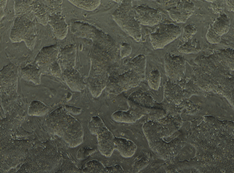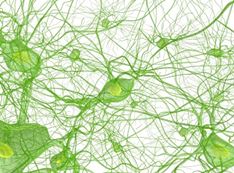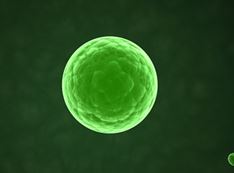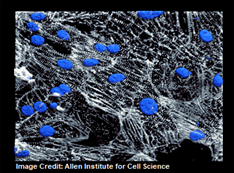Induced pluripotent stem cells (iPSCs) are valuable to scientists due to their potential in disease pathology research and highly targeted therapies to improve health outcomes.
Through several collections in its care, Coriell offers high quality stem cell products including human induced pluripotent stem cells, mouse embryonic stem cells, differentiated cell lines, and organoids.
Coriell’s laboratories operate under the most stringent ISO 9001:2015 certified standard operating procedures, including performance of quality control testing and assessment of pluripotency and each characterized hiPS cell line is accompanied with a detailed Certificate of Analysis (CofA) upon completion.
The stem cells distributed by Coriell are strictly for research purposes and cannot be used in human subjects. For Repository iPSC lines, all terms described in the repository’s Material Transfer Agreement (Assurance Form) for the stem cell line must be agreed to prior to using stem cell lines from Coriell.
Investigators must be aware that iPSCs and mESCs require special media and handling. All stem cell lines are shipped frozen on dry ice. Investigators interested in obtaining these lines are encouraged to review the culture protocols and FAQs for freeze recovery, passaging, and cryopreservation information before placing their order. Customers who have technical questions can email stemcellbiobank@coriell.org for further information.
Please always refer to the individual cell line’s CofA for the specific cell line culture conditions. Detailed protocols are available on the appropriate repository page but should only be treated as general guidelines.
 |  |  |
IPScCoriell offers highly characterized human induced pluripotent stem cell (hiPSC) lines derived from individuals affected with heritable diseases as well as apparently healthy control cell lines. Every hiPSC line undergoes rigorous characterization and quality control testing ensuring only the highest quality hiPSC lines are distributed. Each cell line is accompanied with a general protocol and specific certificate of analysis including images and quantitative test results. | mESC 2The Mouse Embryonic Stem Cell Collection, consisting of 102 cell lines, has been created by a researcher in the NIA Intramural Research Program, Dr. Minoru S.H. Ko, as part of a project to induce transcription factors and study their effects on core transcriptional regulatory networks. In each cell line, a transcription factor tagged with a FLAG-tag that is inserted into the ROSA 26 locus of a Tet-repressible gene expression system. | Differentiated Cell LinesCoriell’s Stem Cell Laboratory is able to perform directed differentiations of iPSCs into various cell types under well defined culture conditions with high efficiency. Some differentiated cell services include neural progenitor cells, midbrain and forebrain neurons, astrocytes, ventricular cardiomyocytes, and atrial cardiomyocytes. Please reach out to us to discuss these services. Please reach out to us to discuss these services. |
 |  |
OrganoidsCoriell offers a variety of 3D cell culture models which more closely recapitulate cell structure and the microenvironment of how cells naturally grow in vivo. Example 3D models include various neuronal organoid or spheroids and intestinal organoids. | Gene-Edited iPSCThe NIGMS repository currently offers multiple isogenic control and knock-out hiPSC lines gene-edited with CRISPR/Cas9 technology. Every gene edited line undergoes the same rigorous characterization and quality control testing as each of our hiPSC lines. Please reach out to us to discuss these services. |